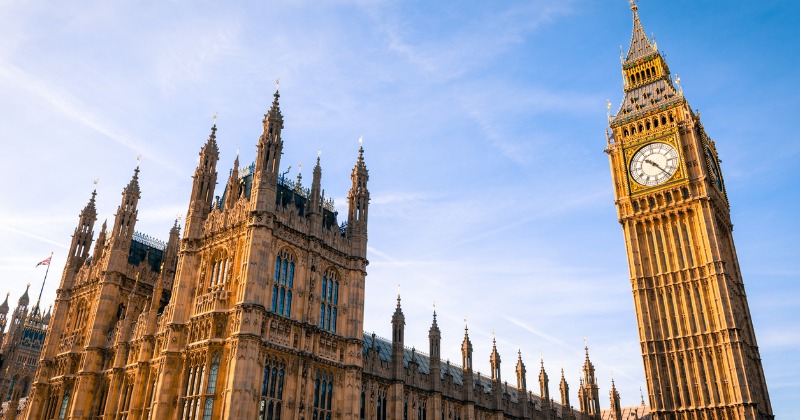The Parliamentary watchdog is investigating an MP over possible transparency breaches by a committee backed by the British Educational Suppliers Association (BESA).
The standards commissioner is probing allegations that Conservative Marcus Fysh broke all-party parliamentary group (APPG) rules concerning “income and expenditure statements” and the publication of “mandatory information”.
Fysh said the inquiry relates to reported breaches by the BESA-supported APPG for education, which he chairs.
After the investigation was revealed this week, Fysh stressed he was looking into the matter himself.

“The group has had no income or expenditure and has simply received secretariat services from Ranelagh Political Communications funded by BESA,” he said. “Such benefits need to be reported along with the provision of various notices of meetings and minutes.
“I am checking whether this has been done correctly on the advice of the secretariat prior to my becoming chairman in February 2020 and since, including during Covid when normal annual general meetings could not take place.”
BESA has paid Ranelagh at least £132,000 over the last eight years to act as the group’s secretariat.
The register of APPGs shows the group published its income and expenditure statement for this year.
It did not publish one for the years between 2017 and 2021. Rules state APPGs only need to do so if they have received more than £12,500 over the previous 12 months.
Guidance says the papers “must be published on the group’s website, or – if it has no website – produce it on request”. The APPG’s website currently does not load, saying “the page isn’t redirecting properly”.
The APPG has held meetings with the likes of Labour deputy leader Angela Rayner, former children’s minister Will Quince, and children’s commissioner Dame Rachel de Souza to discuss issues such as SEND reforms and alternative provision.
It described itself as a group that “promotes and stimulates debates across all sectors of education”. In 2017, it produced a report into “how schools prepare young people for the future”.
Fysh said the group has also engaged “with the roll out of technical education”, despite being “relatively inactive due to Covid restrictions over the past few years”.
When asked about the standards probe, BESA director general Caroline Wright and Ranelagh managing director Anna Wolffe said they had not been contacted by the commissioner.
“As such I’m unable to comment on any investigation that may be underway,” Wright added. “BESA would obviously provide any support and information required should it be contacted in the future.”
Analysis by The Guardian and opedDemocracy website last year found more than £13 million had been poured into a growing number of APPGs, fuelling concerns over the potential for backdoor influence. Of the 755 groups last year, more than half of the total £25 million funding came from private firms. The rest was charities and trade unions.
Steve Goodrich, of Transparency International, told The Guardian there is a “plethora of interests behind these groups that remain [largely] unchecked by formal rules. Without greater transparency over lobbying, much of what happens in these groups will remain behind closed doors.”
On its website, Ranelagh said it is “fully versed in all the rules governing the provision of secretariat services for APPGs and we ensure all groups for which we provide support comply with these regulations”.
BESA has also paid the communications firm to act as secretariat for the APPG for education technology.
The group was previously chaired by former education secretary Damian Hinds and Chris Skidmore, who was once a minister at the DfE.
Wright explained that the group does not currently appear on the register of APPGs “because it has not met or appointed officers during the current period”.
A standards commissioner spokesperson said she was unable to comment on the conduct of individual MPs outside the information published online.
BESA has been in the headlines over its public opposition to the £42 million Oak curriculum government quango.
A letter to education secretary Gillian Keegan, co-ordinated by BESA six months ago, said Oak was a waste of “public funding on what looks set to become another ill-fated government technology project”, calling for it to be scrapped.
Four of the five members of the House of Lords who signed the letter had paid roles with potential firms that are rivals to Oak.
















Your thoughts